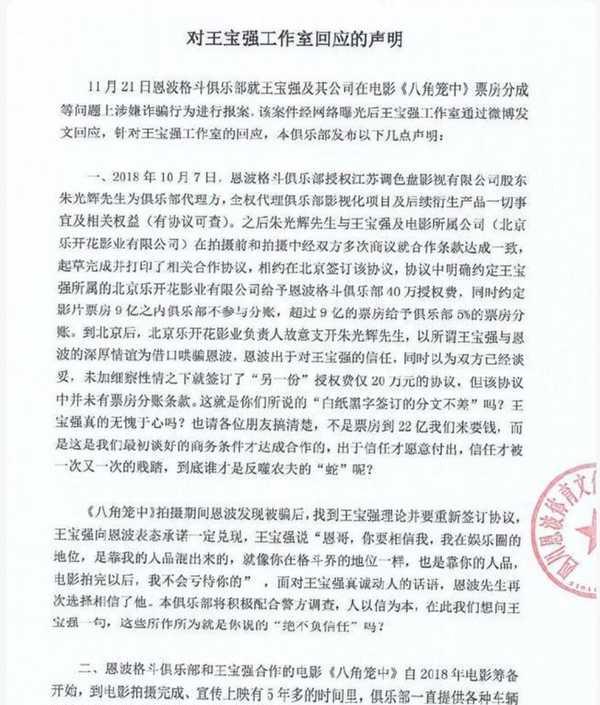Box Office Controversy: King of Kungfu vs Game Club
A dispute erupted between Chinese film producer Wang Baoqiang and Enbo Fight Club over profit-sharing of the hit movie ‘Full River Red,’ with the club accusing Wang of fraud amounting to 100 million yuan, while Wang’s team presents evidence of fulfilled obligations.

The Chinese entertainment industry was shaken by allegations of fraud against prominent producer Wang Baoqiang by the Enbo Fight Club in Chengdu, China. The controversy centers around the profit-sharing agreement for the highly successful film “Full River Red,” which generated substantial box office returns.
The dispute reveals the complex nature of film industry agreements in China’s entertainment sector. According to industry standards, movie revenue distribution typically follows a structured format: approximately 3.3% goes to value-added tax, 5% to film industry funds, and 57% to theaters and cinema chains. The remaining portion is divided among producers, distributors, and other stakeholders.
The central conflict emerged when Enbo Fight Club claimed they were promised 5% of box office revenues exceeding 900 million yuan. However, Wang’s team presented evidence showing they had already fulfilled their contractual obligations, including a 300,000 yuan medical care contribution when a club member fell ill and an additional 300,000 yuan raised through charity matches.
The situation highlights several critical aspects of the entertainment business in China. Film producer Liu Yong publicly supported Wang Baoqiang, sharing transaction records and explaining that all authorized payments were completed according to the signed agreement. He criticized the club’s demands as excessive, describing their behavior as “a farmer trying to catch a snake, endlessly greedy.”
Industry experts point out that a 5% revenue share agreement would be unusually high for a venue provider, as even film directors typically receive between 5-15% of the production company’s total income, not the total box office revenue. This detail adds credibility to Wang’s position in the dispute.
The controversy has sparked broader discussions about contract practices in China’s entertainment sector. Legal experts emphasize the importance of written agreements over verbal promises, noting that unwritten commitments often lead to disputes in high-stakes entertainment deals.
The case also demonstrates how social media can amplify financial disputes in the entertainment industry. While Enbo Fight Club chose to voice their grievances online, Wang’s team responded with documented evidence of payments and contractual fulfillment, shifting public opinion in their favor.
As this situation continues to develop, it serves as a cautionary tale about the necessity of clear, written agreements in entertainment industry collaborations, particularly when substantial profits are involved. The dispute also reflects the evolving nature of business relationships in China’s rapidly growing film industry, where traditional handshake deals are increasingly giving way to more formalized contractual arrangements.